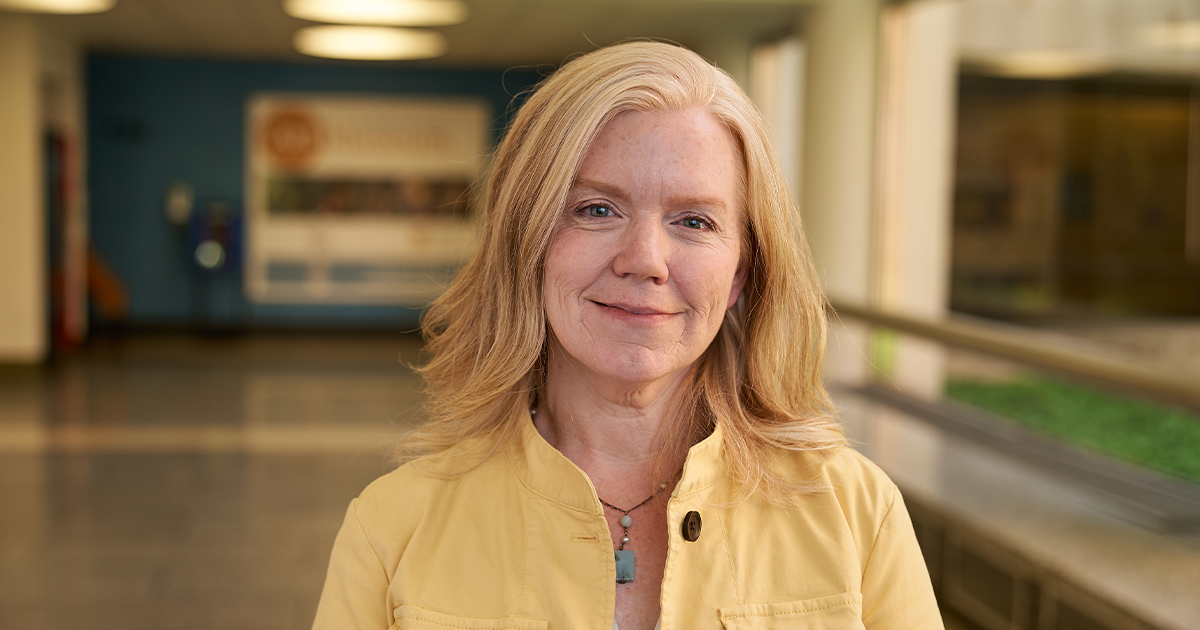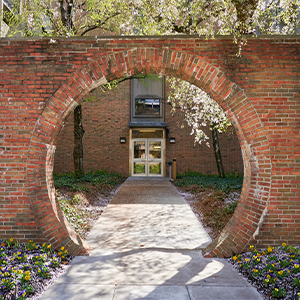La Salle University
NEH grant supports School of Arts and Sciences in developing a new program

The funding will assist in developing a health and humanities minor exploring the relationships between health and the human condition.
La Salle University has received a high honor in the world of humanities.
The National Endowment for the Humanities (NEH) has awarded La Salle a NEH Connections Grant, building the foundation to fund a health and humanities minor that will explore the relationships between health and the human condition.
The National Endowment for the Humanities, an independent federal agency created in 1965, supports research and learning in history, literature, philosophy, and other areas of the humanities by funding selected, peer-reviewed proposals from across the U.S.
The program director of this new initiative at La Salle is Siobhan Conaty, Ph.D., associate professor of art history. With Brian DeHaven, Ph.D., associate professor of biology, Conaty will begin researching and planning for what will become a concentration, then an undergraduate minor and, possibly, a major in La Salle’s School of Arts and Sciences.
The new concentration will be available to students in the 2023-24 academic year. It will continue through the process of becoming a minor, with the long-term goal of it becoming an undergraduate major, Conaty said.
“It is really an honor to be selected by the NEH,” Conaty said. “We plan to create a program here that will benefit both our students and the larger professional health field.”

Universities, Conaty said, need health humanities more than ever. Citing a global pandemic, strained health care systems and economies, and cultural and political polarization, she sees a greater need for healthcare professionals and scientists who can attend to the facts of public health and medicine intertwined with human compassion.
With many medical schools requiring students to complete humanities courses, Conaty said it only made sense for La Salle to offer a similar opportunity to its students enrolled in pre-health undergraduate courses.
“This is exciting on multiple fronts,” said DeHaven. “It encourages our pre-medical students to experience courses and topics in the humanities while helping them to build their resumes for medical school. Programs like this have been shown to improve their diagnostic accuracy down the road.”
This NEH planning grant allows Conaty and DeHaven to spend the next year researching, visiting campuses with similar programs, and assessing what resources are already available at La Salle.
Conaty said she and DeHaven will utilize the existing faculty strengths to create an interdisciplinary, dynamic, and experiential program. She said the University’s humanities courses use and apply methods that provide future health professionals with new perspectives on the fragility of health, illness, suffering, and disparities in health care systems within philosophical, cultural, and historical contexts.
“We are excited to be part of programming that recognizes the critical role of the humanities in health education and look forward to positioning La Salle as an innovator in undergraduate health humanities education.”
La Salle’s campus holds a plethora of resources for this program, Conaty said, including the Art Museum and Connelly Library, among others. The next step, she said, is applying for an implementation grant through NEH to get the program established on campus.
“I’m delighted that our colleagues have received this grant, which will allow us to further our mission to provide an education that is practical for our students and firmly grounded in the humanities,” said Lynne Texter, Ph.D., Interim Provost and Vice President of Academic Affairs. “This interdisciplinary minor will be a timely and valuable addition to our course offerings. Students will have exposure to our outstanding faculty as they expand their knowledge, enhance their credentials for medical school, and prepare to become more attentive, caring, and reflective professionals.”
In a 2020 report from the Association of American Medical Colleges (AAMC), titled The Fundamental Role of the Arts and Humanities in Medical Education, there are four functions of arts and humanities cited as strengthening the education of medical students and physicians:
- Mastering skills: Improving clinical care abilities like case presentation and critical thinking.
- Taking perspective: Bringing to light the varying perspectives of patients and others involved in clinical encounters
- Personal insight: Fostering reflection about inward processes and struggles, which contribute to self-identity, emotional growth, wellness, and resilience.
- Social advocacy: Inciting learners to critique and transform norms, as well as potential inequities and injustices in health care.
“We are excited to be part of programming that recognizes the critical role of the humanities in health education and look forward to positioning La Salle as an innovator in undergraduate health humanities education,” Conaty said.
Conaty said the NEH Connections Grant application process spanned roughly six months. Three others assisted with the process: Pamela Barnett, Ph.D., dean of La Salle’s School of Arts and Sciences; LeeAnn Cardaciotto, Ph.D., interim director of the professional clinical counseling master’s program, associate dean of arts and sciences, and associate professor of psychology; and Lisa Jarvinen, Ph.D., associate dean and associate professor.

Any views, findings, conclusions, or recommendations expressed in this article do not necessarily represent those of the National Endowment for the Humanities.
This project has been made possible in part by a major grant from the National Endowment for the Humanities: Humanities Connections.
—Meg Ryan